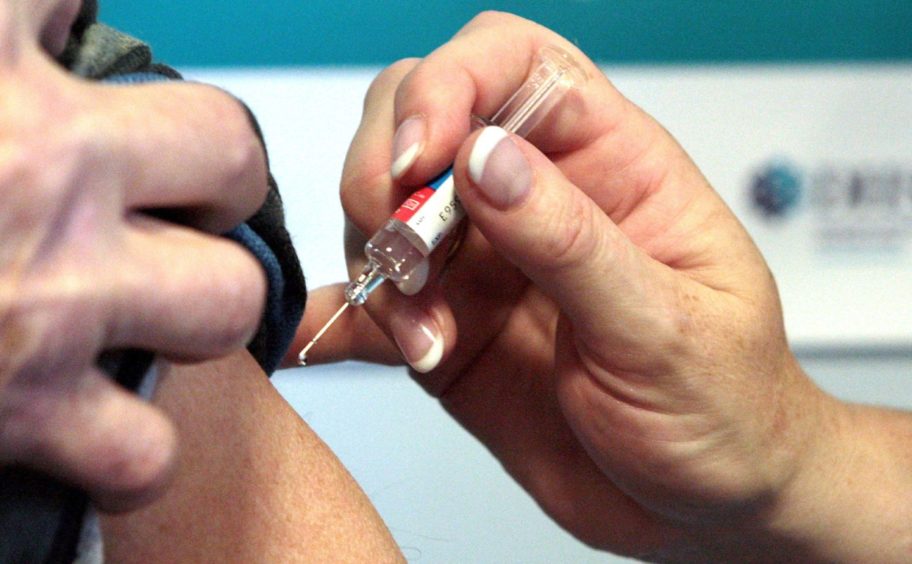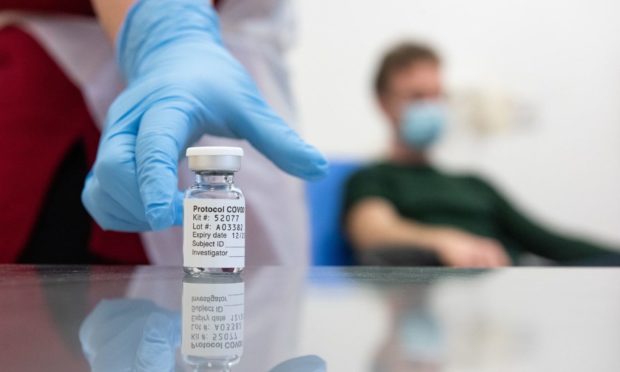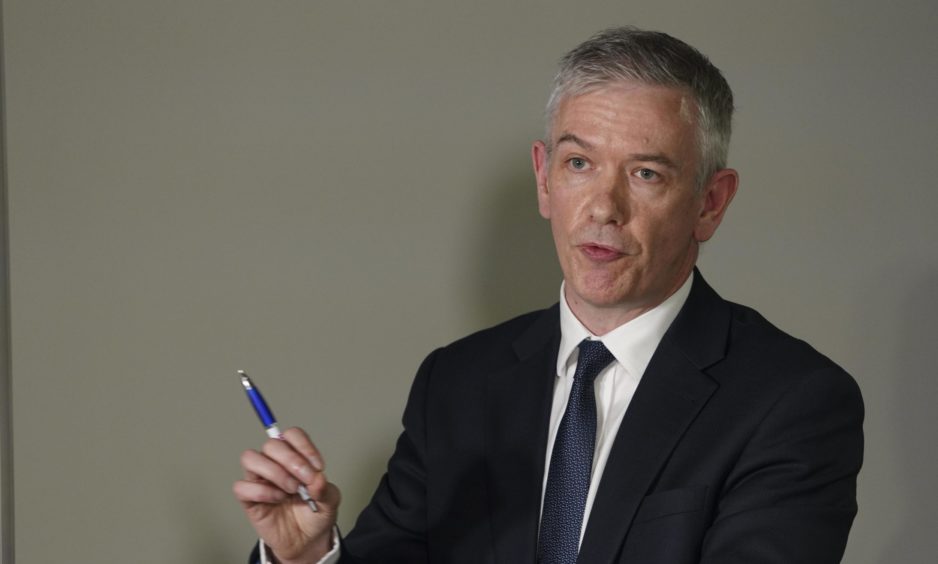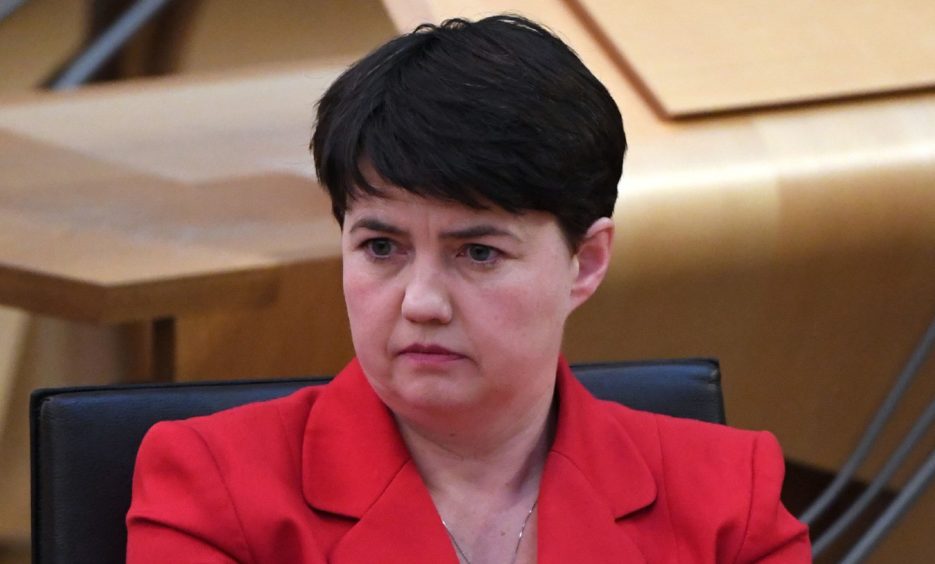Nicola Sturgeon has described the rollout of the new Pfizer/BioNTech coronavirus vaccine in Scotland as the “biggest logistical peacetime challenge that the country will ever have undertaken”.
The first Covid jabs will begin next Tuesday and with patients requiring two vaccinations spaced 28 days apart, some of the most vulnerable people in the country can expect to be protected from the deadly virus for the first time in early January.
The news that Britain’s medicines regulator, the MHRA, had become the first in the world to give the go-ahead for the vaccine candidate to be rolled out was welcomed on Wednesday as a hugely significant milestone in the world’s fight against Covid-19.
But the first minister admitted a number of key details remain unclear, and ministers face an uphill battle to provide the infrastructure and logistics necessary to begin the first phase of a nationwide vaccination programme in just six days.
Complicated characteristics
The process is further complicated by the characteristics of the new vaccine, which will become the first, but likely not the last, made available in Scotland.
The Pfizer/BioNTech vaccine comes in a box with 195 multi-dose vials – around 975 doses – and lasts for around six months when stored at -75C.
At normal fridge temperature that window reduces to just five days, and at room temperature, ready for vaccination, there is around a two-hour expiry time.

Around 320,000 doses will arrive in Scotland by the end of December but the Scottish Government is still not able to say where people will go to receive the vaccination or how care home residents will be given the jab.
Speaking during her daily coronavirus briefing on Wednesday, Ms Sturgeon confirmed work is still ongoing to establish the location of vaccination centres.
Remaining uncertainties
She said: “There are two issues here that are very closely connected. There is capacity to deliver a vaccination programme and then there is the flow of supply of the vaccine.
“In terms of capacity and the infrastructure to deliver the vaccine, our plans are well developed and well on the way to implementation.
“We are looking at identifying the vaccine centres where vaccination will be done and the plans to get vaccines to people in care homes, because they are obviously at the top of the priority list.”

Ms Sturgeon said the delivery of the vaccine to care home residents is “one of the remaining uncertainties”, particularly because of the storage and transportation requirements of the Pfizer vaccine.
Ministers are in talks with the MHRA about how and when the vaccine could be transported from the 23 ultra-low temperature freezers purchased to store doses across Scotland.
MSPs have legitimate and essential questions to ask on behalf of their constituents.”
Ruth Davidson
It is hoped this would allow the vaccine to be brought directly into care homes in smaller volumes and avoid the challenge of transporting elderly and vulnerable residents to other facilities to receive the two jabs.
NHS leaders have said there could also be “roving teams” deployed to vaccinate care home residents and workers on site.
📺 Watch live: First Minister Nicola Sturgeon holds a press conference on #coronavirus (#COVIDー19).
Joining the First Minister today is Scotland’s Interim Chief Medical Officer Dr Gregor Smith. https://t.co/lc62atvObh
— Scottish Government (@scotgov) December 2, 2020
“There is still a question about how easy it will be to take that vaccine to people as opposed to take people to the vaccine,” Ms Sturgeon said. “And that is one of the things that discussions with the MHRA are ongoing about.
“We have NHS boards very centrally involved in that planning process, local authorities are also involved in helping us identify sites and some of the other logistics.
“We have assistance from the military right now in terms of the logistical planning around all of this, for which we are very grateful indeed.”

Every person over the age of 18 will eventually be able to receive the vaccine and an initial workforce of more than 2,000 doctors, nurses, pharmacists and dentists will be ready before phase two of the rollout in February.
A number of other vaccines may also become available through the early stages of next year, including some that may be easier to transport, but ministers are already working on how to make the Pfizer vaccine available in rural and island communities.
The first minister pledged there would be “fair distribution across all parts of Scotland” but said the characteristics of each vaccine could determine which one people living in each area receive.
Scotland’s chief medical officer, Dr Gregor Smith, said hospital sites across every health board area had been supplied with ultra-low freezers to store the Pfizer vaccine.
“The logistics are complex and huge,” he said. “And in this first phase we’re certainly going to be concentrating to make sure that those who would most benefit from receiving the vaccine are able to be seen and to be vaccinated.
Wonderful news that MHRA has approved the authorisation to supply Pfizer BioNTech coronavirus vaccine. First of several vaccines in pipeline and begins to change everything for our future. 😁 https://t.co/Ri02imfXS9
— Gregor Smith (@DrGregorSmith) December 2, 2020
“That includes, within our island boards, making sure that we’ve got the ability to store these vaccines in ultra-low freezers there so that we can deploy those.
“It’s not going to be easy in all circumstances to be using these vaccines, for the reasons that we’ve outlined, but we’re fortunate we have a pipeline of other products which are likely to come on-stream in the fairly near future.”
An urgent statement
The Scottish Government faced criticism after refusing a request for the first minister to provide an urgent statement to Parliament on the vaccine delivery plan reviewed by Cabinet on Tuesday, which has not yet been published.
Opposition parties have raised concerns of a repeat of the winter flu vaccine issues, which saw patients turned away and told there was not enough stock available to immunise them against the virus.
Scottish Conservative Holyrood leader Ruth Davidson said: “This is a national moment, when the first formally authorised vaccine is able to be rolled out across the UK to help us beat Covid and herald the start of a return to normal life.
“MSPs have legitimate and essential questions to ask on behalf of their constituents regarding how and when this vaccine will be delivered across Scotland.
“The public needs to hear answers from the first minister and the plans have to be scrutinised fully by Parliament to avoid any pitfalls, such as the postcode lottery that occurred with the flu jab rollout this year.
“The first vaccine will be delivered in less than a week, so it’s deeply disappointing to reject an urgent statement when this is plainly urgent.
“For everyone out there wondering when their elderly relatives in care homes will get the vaccine, nothing is more important, and the government needs to start treating it with the urgency it deserves.”



